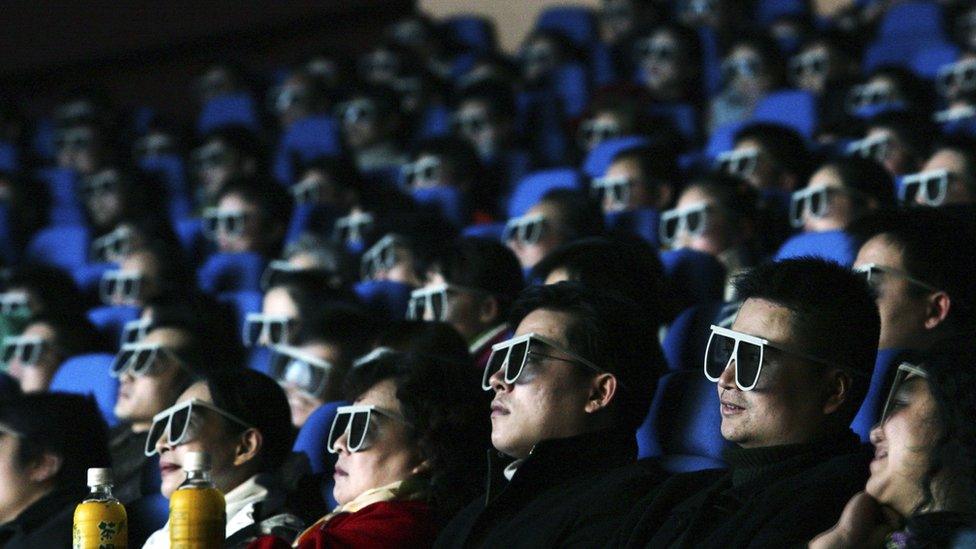The Great Wall: China takes on the world with new Matt Damon film
- Published
Matt Damon defends China film role
Despite a long tradition of movie-making, and much critical acclaim for its directors overseas, China has never yet produced a truly global blockbuster.
But this is being billed as the moment when Chinese film finally takes on the world.
The Great Wall is one of the most lavish and expensive films ever shot in China.
Directed by the living-great of Chinese cinema, Zhang Yimou, it makes use of vast theatrical sets, elaborate costumes as well as great Chinese cultural icons like, er, Matt Damon.
Matt Damon?
The US superstar's leading role in the swashbuckling Chinese showcase has already been the subject of much controversy.
"Well, 'whitewashing' you've got to define," he tells me.
"Whitewashing for me was always like Chuck Connors playing Geronimo, so I don't know if that would even be the right term to accuse us of."
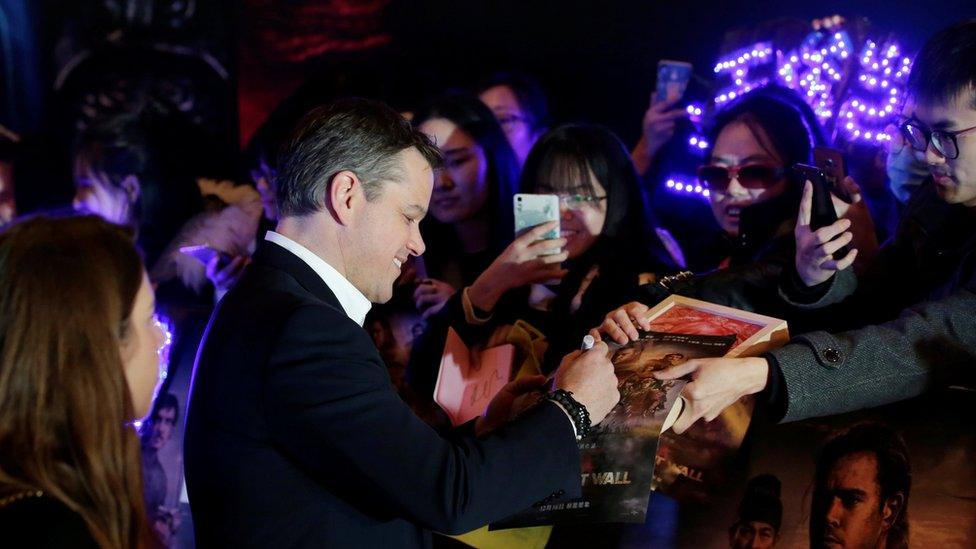
Actor Matt Damon attends a red-carpet event for lavish new film The Great Wall in Beijing
'We never consider race first'
The accusation that a Caucasian male star has somehow been shoehorned into the piece to give the film a more direct appeal to American and European audiences is something that also rankles with Zhang Yimou.
"Matt Damon plays a foreign mercenary who comes to China to steal gun powder," Mr Zhang tells me.
"Of course he is a foreigner. For the director, we never consider the race question first. We always think about the story first. If the story flows, if the story is good."
Mr Damon joins the massed ranks of the Chinese army on top of perhaps the greatest cultural icon of them all, the Great Wall, built not to keep out men, according to the fantastical plot, but monsters.
The budget of at least $100m (£80m) underwrites a US-China collaboration of a kind that is becoming increasingly common nowadays.
And such collaborations align neatly with one of the political priorities of the Chinese government: to expand its international cultural influence.
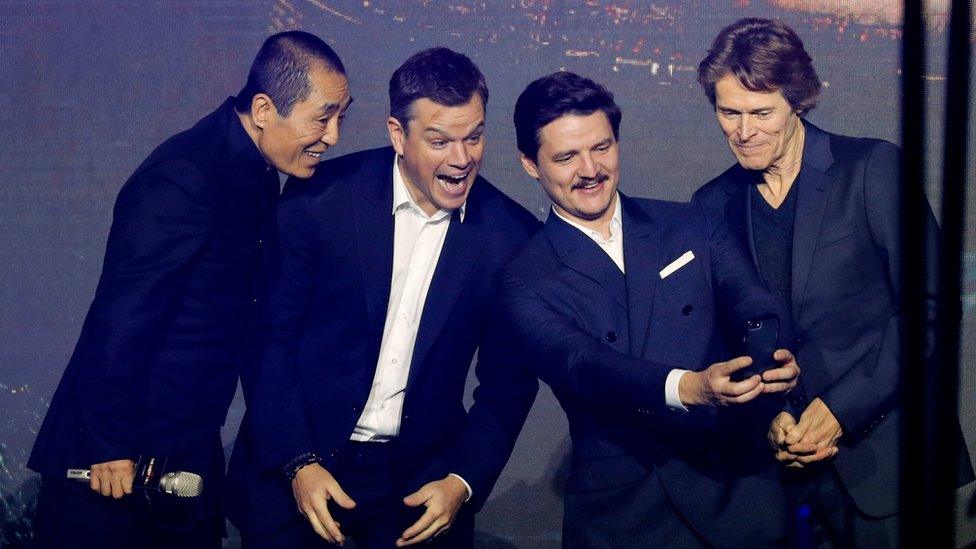
The Great Wall's director Zhang Yimou with actors Matt Damon, Pedro Pascal and Willem Dafoe
Rivalling Hollywood's soft power
As Hollywood comes to China in desperate search of new, lucrative audiences, China is desperate to harness something of the elusive magic.
If it can build its own film industry, the argument goes, it can use it to develop its so-called "soft power", in the same way US movies have carried American values and norms around the world for a century or more.
And that appears, on some level at least, to be what The Great Wall is trying to do.
It can appeal to Chinese and international audiences alike, hence the internationalised plot line, allowing the incorporation of a Hollywood star.
And it carries a central message about time-honoured Chinese ingenuity (the gunpowder), as well as lasting cultural power (the Great Wall).
Matt Damon though is having none of it.
"No, I didn't for a second think this film was a propaganda tool," he says.
"I think our world is a much better place when we're talking to each other and collaborating and making art together."
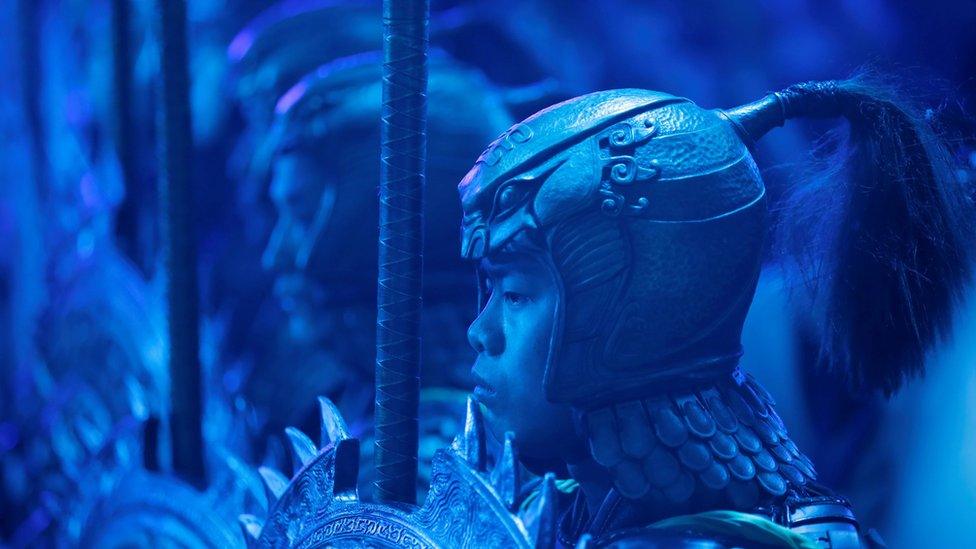
Performers promoting The Great Wall film in Beijing
'No director has 100% freedom'
For Zhang Yimou, the experience of working on such a giant US-Chinese co-production has, he says, opened his eyes.
Not to the political sensitivities of communist China, of which he is already well aware of course, but of the restrictions that commercial pressures bring to bear.
"This time I discovered that Hollywood has lots of restrictions too," he says.
"It is a system based on producers and companies... As far as creativity is concerned, I think there is not 100% freedom for any directors around the world. The job of a director is to do his best under limited circumstances."
Whatever the truth in that, it is surely the case that American films have been such powerful vehicles for the transportation of American values for the simple reason that those values have universal appeal.
So is the first all made-in-China blockbuster finally about to be released?
Zhang Yimou thinks the time has come.
"The world is following Hollywood. Everyone else is absent," he tells me.
"This is not normal."
- Published29 July 2016
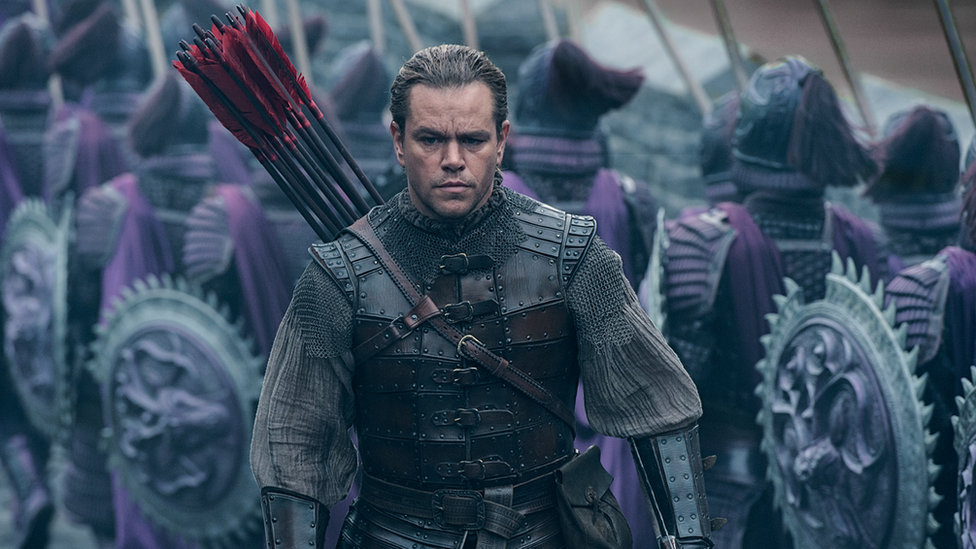
- Published28 November 2016
